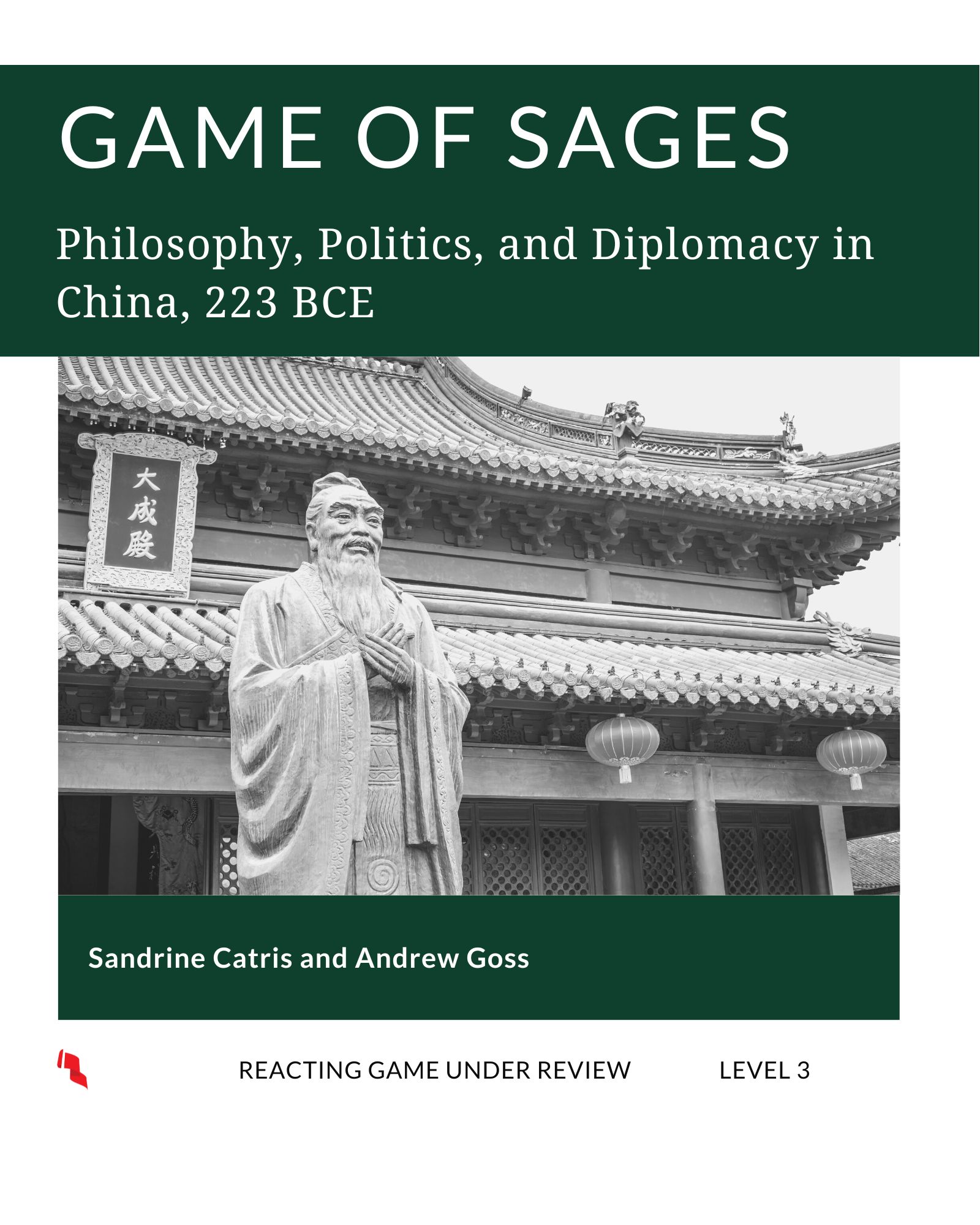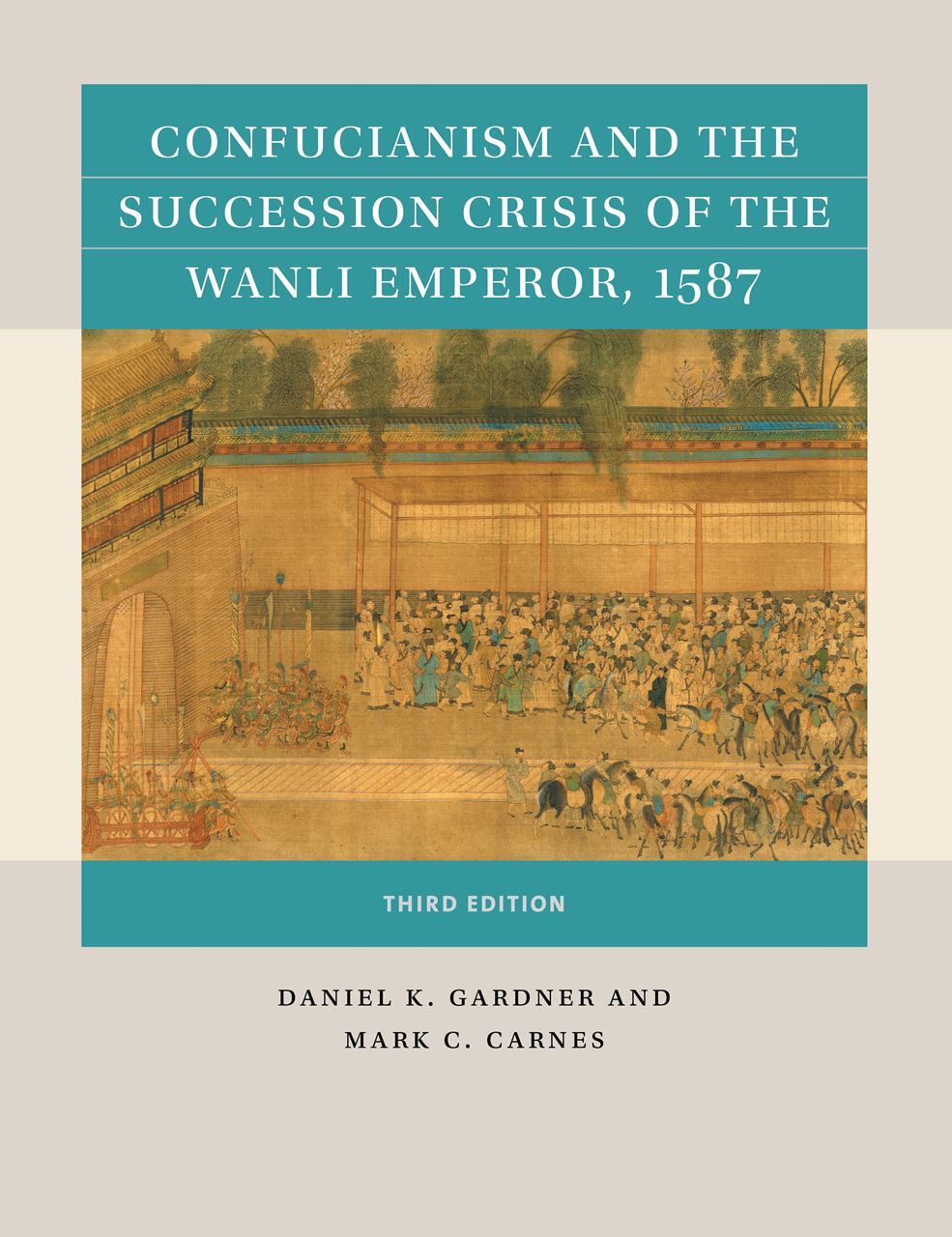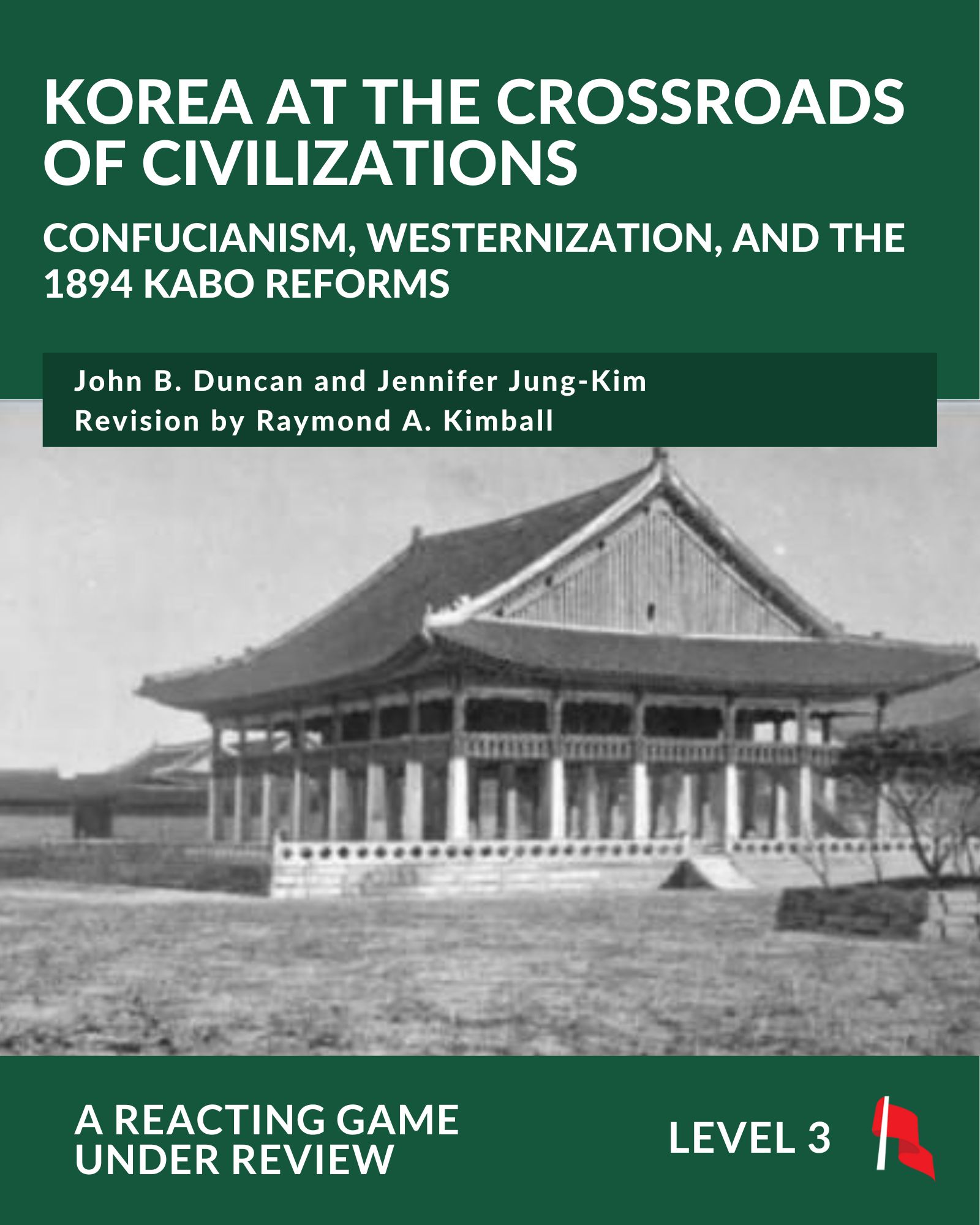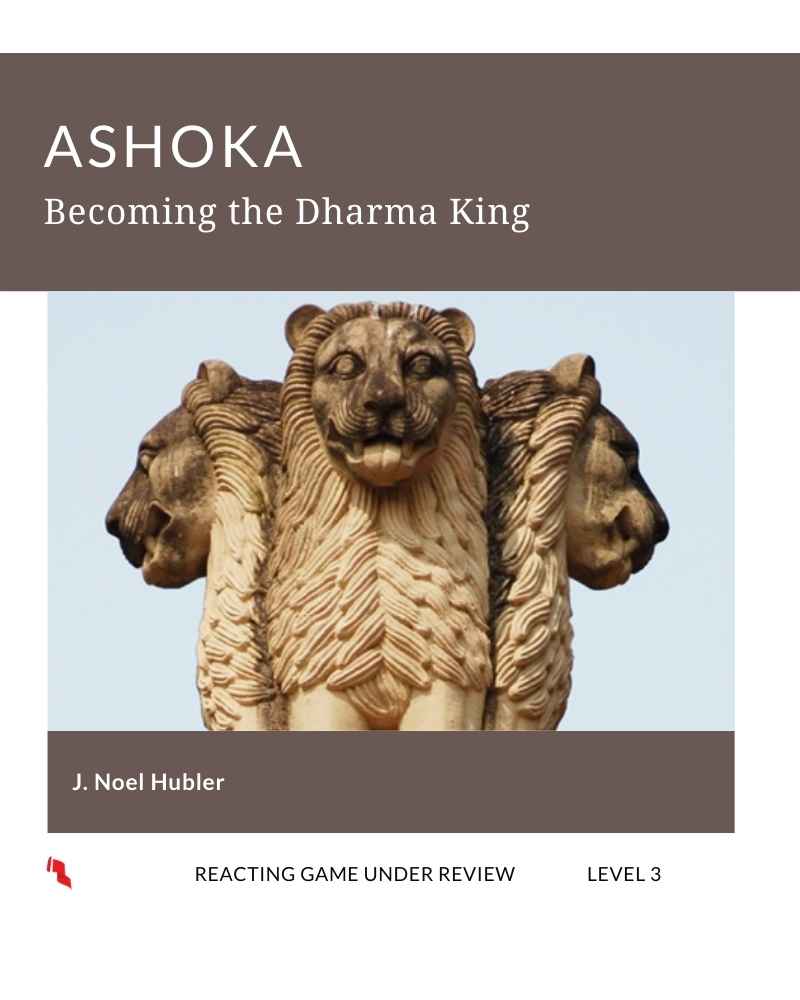 |

Play this game recently? | The State of Chu Must Reform or Die This game takes place at the end of the Warring States period in China, at a time when Qin state has already absorbed two of the previously existent seven states, and is threatening the remaining four states of Chu, Qi, Zhao and Yan. The game is centered on the once powerful state of Chu, which has been reduced to a shadow of its former itself, losing territory and beset by internal squabbling amongst rulers and ministers. Chu has now become infamous for its corruption, incompetence, and a weak monarchy. The game revolves around an effort by the King of Chu to reform his government, as a last-ditch effort to strengthen his state against the expanding Qin state. He has recruited persuaders and statesmen from around China to assist Chu in helping improve its governance and political institutions. The simulation is structured as a debate amongst the four most influential philosophical legacies of the Warring States era: Confucianism, Naturalism, Legalism, and Mohism. The game brings to life the rich cultural traditions of the Warring States period, and also sets the stage for discussing how the Han synthesis (and subsequent Chinese political traditions) drew from a multitude of earlier traditions. This is a Level 3 game that is still under development but has been approved by the Reacting Editorial Board (REB) for general use. A detailed explanation of the editorial process and game levels can be found on our REB Page. |
Details
|
Notable Roles |
|
Using the Game
Class Size and Scalability Class Time
This game can be used on its own, or with other games. These pairings are meant to be illustrative rather than exhaustive or prescriptive. Game of Sages may pair well with:
Traditional Paper/ Research/Thesis-Driven Writing, Criticism All roles are expected to give a speech during the game. |
 GAME MATERIALS
GAME MATERIALS
Reacting Consortium members can access all downloadable materials (including expanded and updated materials) below. You will be asked to sign in before downloading. Basic game materials (Gamebook, Role Sheets, Instructor's Guide, and Handouts) are available to any instructor through the publisher.
Please Fill out the Permissions Request Form Before Using Game of Sages in Your Class!
Gamebook Students need a Gamebook, which includes directions, resources, and historical content. Game of Sages is available to download. Updated June 2023 | Role Sheets Students also need a Role Sheet, which contains biographical information, role-specific resources or assignments, and their character's secret victory objectives. .zip file of .docx files. | Instructor's Manual The Instructor's Manual includes guidance for assigning roles, presenting historical context, assignments, activities and discussion topics, and more. .docx file. .xlsx file. |
Sandrine Catris
Sandrine Catris is a historian of East Asia, with a research expertise on the intersection of politics and memory in 20th China. She teaches a wide range of courses about East Asia and World History. |
Andrew Goss
Andrew Goss’ research examines the scientific and technological interactions that have contributed to creating the modern world, in particular in the context of empires and colonialism. His teaching interest extends to the political and cultural history of Asia, the Middle East, and Europe. He is a leading expert on the history of science in Indonesia, and has published about the history of science, empire, and medicine. |
Members can contact game authors directly if they have questions about using the game. We also invite instructors join our Facebook Faculty Lounge, where you'll find a wonderful community eager to help and answer questions.
|
|
|


